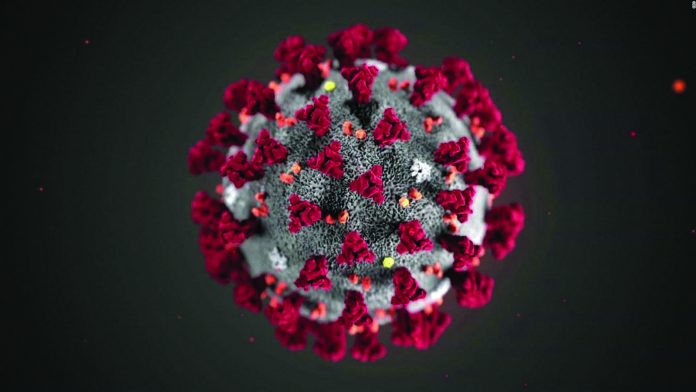
Working out at the Lilly Center gym is a routine many DePauw students find fulfilling and imperative to their physical and emotional wellbeing. Sophomore Mahnoor Zahid had begun her weight training when she suddenly fell ill with COVID-19 a week before Thanksgiving break. After isolating and recovering, Zahid’s wellness routines have significantly changed.
Zahid’s most pressing symptom is fatigue, a lingering symptom that cuts her day in half. According to Zahid, she has gotten more sleep than normal since getting COVID-19.
“Despite having a good night's rest, I still wake up tired,” she said, “And even though I push myself after having a big cup of coffee, my cutoff time is like 3 p.m.-4 p.m.”
Fatigue also persists in her muscles which contributes to her daily annoyances. Opening the front doors to Julian is difficult, requiring two hands and all her strength to enter the Science and Mathematics building, according to Zahid.
“I'm kind of scared of going back to the gym. I don't want to see how much strength I've lost because I've been weight training these past couple of months, and it's going to be super disheartening if I go back to the gym and I've lost all that progress,” Zahid said.
She has not returned to the weight room since leaving isolation on November 26.
“Long-COVID,” as the CDC calls it, is the persistence of symptoms after a patient has recovered from having the virus. The symptoms vary in severity, but as current intensive-care COVID-19 patients and the rise of the Omicron variant take the main stage of the pandemic news sphere, the COVID long-haulers remain burdened in silence by the symptoms that have lasted.
“[Long-COVID] can cause some concentration problems, sleep problems, cough, headache, trouble sleeping,” David Harsha, medical director for DePauw Health and head team physician, said. “[The symptoms] can kind of be aggravating especially if you're a college student trying to get back to activities.”
The timeline of contracting COVID-19 and coping with symptoms isn’t easy on anyone at this time of the semester.
“Even mentally and physically I'm just so exhausted,” Zahid said. “It's very inconvenient, considering it's finals week… not only do I have to study for finals, I also have some work to catch up on from before Thanksgiving break, so I ended up missing classes, and missing some very crucial assignments which were due before Thanksgiving break.”
But student responsibilities have not vanished because of her long-term effects now that most classes do not offer asynchronous or online options for those who are sick. Zahid believes she got lucky with professors that extended deadlines due to her missed class and altered abilities.
“The majority of [long-term symptoms] occur in people who have had moderate to severe illness, such as hospitalization or ICU stays. They tend to have a much higher risk of that long-haul type of problem,” Harsha said. “But even people who've had mild symptoms can have it, it's just much less likely if you're young, healthy and don't have a bad case of COVID but it still can happen.”
Although the long-COVID phenomena doesn’t have much explanation, college-age people with non-severe cases are still suffering from these lingering annoyances.
Another common long-haul symptom is the loss of taste and smell. “The smell and taste return can take several weeks to months for some people. The good news is, most people do have a return. But sometimes it can take a while,” Harsha said.
And a while it took. “I was not able to smell at all for about a month, then when I was getting my smell back, everything smelled like burning tar,” senior Louise Gallup said. After testing positive for COVID-19 in January of 2021, Gallup dealt with an altered sense of taste and smell for months.
Not only can these symptoms get in the way of activities and academics for college students, they can ruin the smaller pleasures like a hot shower and a cup of coffee.
“I had to switch my shampoo and stay away from coffee for a while because the smells made me so nauseous,” Gallup said. “After about a month of this, I slowly started to get my smell back… it took about three to four months for it to return to normal,” she added.
The long-COVID phenomena is still undergoing research, as people of all ages and case-by-case severities are being considered in the statistics behind this occurrence. But as with all COVID-related risks, prevention is key.
Harsha encourages seeking credible sources such as the CDC website and Indiana State Department of Health for COVID-19 information including booster shots, vaccinations, and above all, prevention.
“The best way to avoid long COVID is to not get it in the first place,” Harsha said. “Even if you haven't had COVID, even if you've had the immunity and the protection against getting COVID again, reducing the risk of long haul symptoms goes way down if you can prevent it in the first place,” he added.
But no matter where COVID-19 is or where it’s going, practicing self-care can be majorly helpful in beating the short and long-term effects.
“If you are concerned about these lingering effects from COVID, certainly see our nurse practitioner here on campus if you have concerns,” Harsha said. “Or if anxiety and depression are worse after COVID as a side effect, seeing one of our counselors can help get through those times.”


